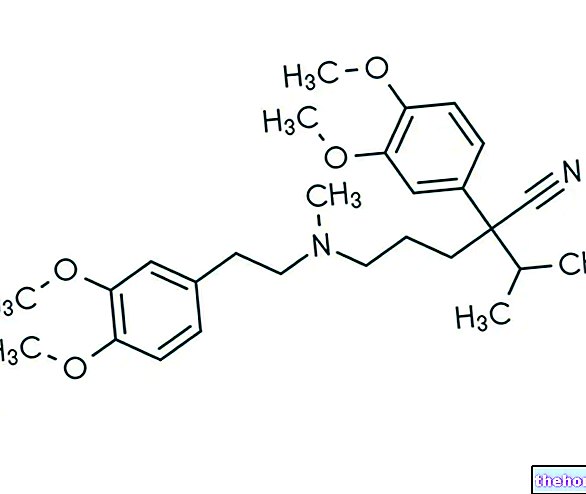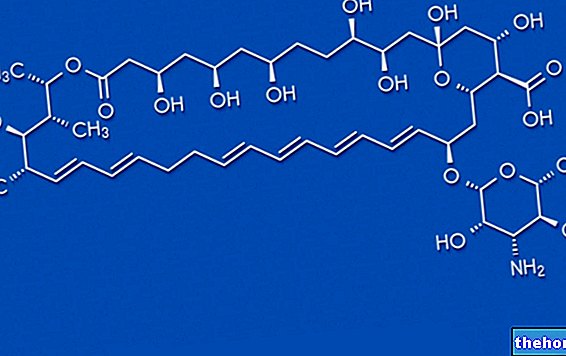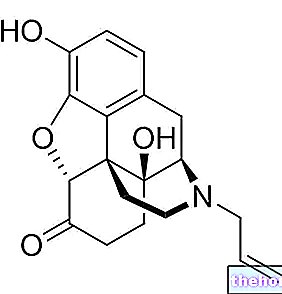ISOCEF ® is a Ceftibuten-based drug
THERAPEUTIC GROUP: General antimicrobials for systemic use - Cephalosporins

Indications ISOCEF ® Ceftibuten
ISOCEF ® is used in the clinical setting in the treatment of respiratory and urinary tract infections caused by microorganisms sensitive to cephalosporins.
Mechanism of action ISOCEF ® Ceftibuten
ISOCEF ® is an antibiotic widely used in the clinical setting, given the high efficacy demonstrated also against microorganisms generally resistant to penicillins and the ease of intake guaranteed by the possibility of using oral administration.
In fact, ceftibuten is an active principle belonging to the class of third generation semisynthetic cephalosporins, whose chemical structure gives it a natural resistance to gastric acidity, such as to allow it to be taken orally.
Absorbed in the intestine, ceftibuten reaches its maximum plasma concentration in about 2-3 hours and is subsequently distributed among all biological fluids, where by easily permeating the biological membranes, with the exception of the blood-brain barrier, it carries out its therapeutic action.
Like the other beta-lactams, ceftibuten also exerts its bactericidal activity, compromising the stability of the bacterial wall, reducing the formation of cross-linking between the peptidoglycan molecules and thus facilitating the lysis of the microorganism by osmotic shock.
At the end of its therapeutic action, which we remember effective against a broad spectrum of both Gram positive and negative microorganisms, ceftibuten is eliminated unchanged mainly through the urine.
Studies carried out and clinical efficacy
1.THE EFFECTIVENESS OF CEFTIBUTEN IN THE TREATMENT OF PYELONEPHRITES
J Med Assoc Thai. 2001 Jun; 84 Suppl 1: S61-7.
Oral ceftibuten switch therapy for acute pyelonephritis in children.
Vilaichone A, Watana D, Chaiwatanarat T.
Oral therapy with ceftibuten was found to be effective and safe in the treatment of pediatric pyelonephritis, significantly reducing the period of hospitalization and the related healthcare costs.
2 . EFFECTIVENESS AND SAFETY OF CEFTIBUTEN IN THE TREATMENT OF ACUTE SINUSITIS
Chemotherapy. 1997 Sep-Oct; 43: 352-7.
Efficacy and tolerability of ceftibuten versus amoxicillin / clavulanate in the treatment of acute sinusitis.
Sterkers O.
Work that demonstrates how treatment with ceftibuten for acute sinusitis of bacterial origin can be as effective as therapy with amoxicillin / clavulanic acid, however, it has a better tolerability.
3. PHARMACOKINETIC PROPERTIES OF CEFTIBUTEN
Chemotherapy. 1995 Jul-Aug; 41: 229-33.
Concentrations of ceftibuten in bronchial secretions.
Scaglione F, Triscari F, Demartini G, Arcidiacono M, Cocuzza C, Fraschini F.
Interesting pharmacokinetic study that demonstrates how the oral intake of ceftibuten can guarantee the achievement of concentrations of the antibiotic in the bronchial secretions, such as to effectively carry out its therapeutic action.
Method of use and dosage
ISOCEF ®
400 mg capsules of ceftibuten;
Ceftibuten 36 mg granules for oral suspension per ml of solution.
Treatment with 400 mg of ceftibuten per day is generally well tolerated and effective against most of the microorganisms responsible for respiratory and urinary tract infections.
The daily dose could be taken in a single dose or divided into two doses every 12 hours.
A dosage adjustment would also be necessary in pediatric and geriatric patients with kidney disease such as to reduce its clearance.
The entire treatment should always be supervised by your doctor.
ISOCEF ® Ceftibuten warnings
Antibiotic therapy with ISOCEF ® should be preceded by a careful medical examination aimed at evaluating the possible presence of conditions incompatible with the administration of cephalosporins and by the cultural isolation of the microorganism with consequent sensitivity test to cephalosporins (antibiogram).
These measures are important to limit the spread of microorganisms resistant to antibiotic therapy.
Particular caution should also be reserved for elderly patients or patients suffering from renal diseases, given the increased susceptibility to the side effects of antibiotic therapy.
Prolonged and disproportionate use of ISOCEF ® could facilitate the emergence of resistant microbial strains and at the same time increase the risk of infection with Clostridium difficile, with consequent pseudo-membranous colitis.
ISOCEF ® contains sucrose, which makes it unsuitable for patients with fructose intolerance, sucrase-isomaltase enzyme deficiency or glucose / galactose malabsorption syndrome.
PREGNANCY AND BREASTFEEDING
The use of ISOCEF ® during pregnancy and in the subsequent period of breastfeeding, should be reserved for cases of real need and always take place under strict specialist medical supervision.
These precautions are linked to the absence of clinical trials capable of characterizing the safety profile of the drug for fetal health.
Interactions
The assumption of ISOCEF ® is generally free from drug interactions capable of altering the pharmacokinetic and pharmacodynamic characteristics of its active principle.
However, it would be useful to remember how the presence of food in the gastrointestinal environment could slow down the systemic absorption of ceftibuten, delaying the onset of its therapeutic effects.
Increase in transaminases, prolongation of prothrombin times and potentially false positivity on the direct Coombs test could be laboratory artifacts observed in patients on cephalosporin therapy.
Contraindications ISOCEF ® Ceftibuten
The use of ISOCEF ® is contraindicated in patients hypersensitive to penicillins and cephalosporins or their excipients.
Undesirable Effects - Side Effects
Although oral therapy with cephalosporins is generally well tolerated and devoid of side effects worthy of clinical relevance, the various studies and clinical experience have described with some frequency adverse reactions such as nausea, diarrhea, dyspepsia, abdominal pain, headache and dizziness.
Leukopenia, thrombocytosis, anemia, hypertransaminasemia, hyperbilirubinemia, edema, bronchospasm, laryngospasm, dermatological reactions and in the most serious cases also systemic anaphylaxis have been observed only rarely, and generally following long-term therapies.
The risk of developing the latter reactions is significantly higher in atopic patients or patients with known hypersensitivity to antibiotics.
Note
ISOCEF ® is a drug subject to mandatory medical prescription.
The information on ISOCEF ® Ceftibuten published on this page may be out of date or incomplete. For a correct use of this information, see the Disclaimer and useful information page.




























